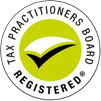In addition to the salary you can receive as an employee, you may also be entitled to a living away from home allowance (LAFHA) which is used to compensate for the additional expenses and any disadvantage that you may suffer while assigned elsewhere in order to perform employment duties.
The LAFHA must be distinguished from the relocation allowance which is paid to employees who have changed their usual place of residence as part of their work. LAFHA is subject to Fringe Benefits Tax (FBT) while the relocation allowance is taxed under the Pay As You Go (PAYG) scheme and the tax due is withheld at the source of payment.
Computing the taxable value of the allowance
The taxable value of the LAFHA is computed by deducting the value of the exempt food and accommodation components.
Exempt food component
This is the amount of the allowance paid to compensate the employee for additional food costs in the alternate location. While there are no strict guidelines for the calculation of this component, the amount must be reasonable and defensible.
You can arrive at an estimate of the food costs using either:
- The indexes and guidelines of the Australian Bureau of Statistics.
- Actual food expenses recorded in a specified period and by computing the difference between the average food expenditure in the home location and the average food expense in the alternate location.
- ATO Guidelines.
Other factors that must be considered to arrive at a reasonable allowance for the food component are:
- The composition of the employee’s family at the start of the FBT year;
- the costs of food in the alternate location;
- the usual food expenditure in the home location.
Exempt accommodation component
This is the amount of the allowance that represents the reasonable accommodation costs in the alternate location.
Just like the food component, there is no strict rule or guideline for determining this amount although it must be reasonable and defensible, taking into consideration such factors as the position of the employee in the business structure and the size of the family who is accompanying the employee.
The Australian Tax Office requires you to provide a living away from home allowance declaration each FBT year to avail of the concessions. Without this declaration, the entire LAFHA payment will be subject to tax and you will not be allowed to reduce the amount of your tax by deducting exempt food and accommodation components.




